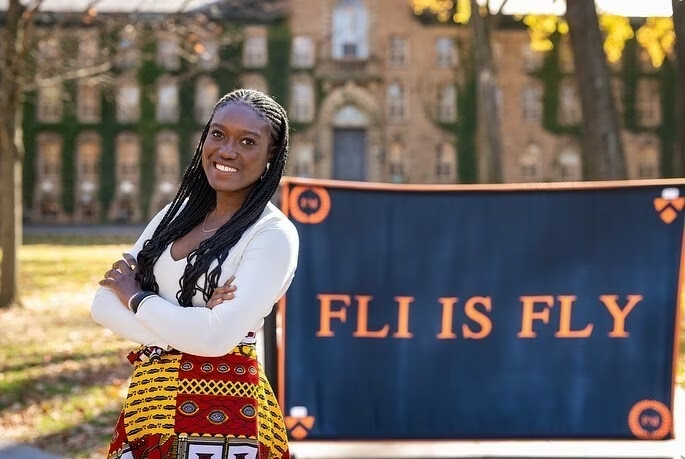In February 2023, four student members of Princeton University’s Rose Castle Society (RCS) were invited to a panel interview with the President’s Advisory Council (the University steering committee) to share how The Rose Way has had an impact on campus life. Danielle Samake – a third year sociology major – gives us an insight into the discussion.

I really enjoyed being invited to share our story and celebrate RCS’ work with the Advisory Council. It felt empowering that the leaders of the University wanted to hear from young people about our experiences of polarization and conflict on campus, and how we are trying to help our peers navigate it.
I think the council was most inspired by the sheer diversity of RCS’ members. Perhaps it is surprising that this unlikely group of people could come together given that we are from all walks of life and have very different ethnicities, religions, political views and cultures. Sometimes it is hard not to judge others based on our own prejudices, biases and misconceptions – and this can bubble up and cause conflict and pain on campus.
We shared how gathering together at Rose Castle last Summer for the Encounter Programme gave us a space outside the often insular, pressurized contexts on campus to come together and build trust. I really felt RCF created a safe space in which I could bring my entire self, sharing my views authentically and trusting that others were going to engage respectfully. The small group discussions around difficult topics were particularly powerful – we were able to be honest, to learn from one another in humility, and to grow. Many of us found we were able to work together to reach new levels of common understanding, without feeling the need to achieve consensus or to convince others who think and live differently.
And then the Advisory Council asked us a challenging question: improving relationships on a small scale is great, but could we realistically have an impact more widely across campus life?
We answered the question by asking the Council to think of the ripple effect of our work. Given the sheer diversity of RCS’ membership, we have genuine power to go back to our usual social groups and challenge our peers’ misconceptions, intolerances, and fears. We have an amazing opportunity to model the habits of reconciliation; to show our friends how to dialogue respectfully, disagree well, and remove preconceptions from interactions. Ultimately, it’s about helping to humanize those we often ‘other’. We genuinely believe that we are helping our peers to embrace the dignity of difference and become resilient against division and hostility.
We are also being intentional about community outreach and action planning. We are launching a series of Rose Castle Society dinners (as part of our great Princeton tradition of feasting together!) where we will put into practice what we have learned about ‘risky hospitality’ by inviting guests once a week to come and dialogue across difference, and explore themes of peace and reconciliation. We are also building The Rose Way into the Freshman’s orientation programme to give all students a grounding in conflict transformation.
There’s no quick fix for tackling social division and conflict. But there is a real sense of optimism about the contribution the Rose Castle Society can make to life at Princeton in the years to come, and the President’s Advisory Council are excited to see where that might lead.